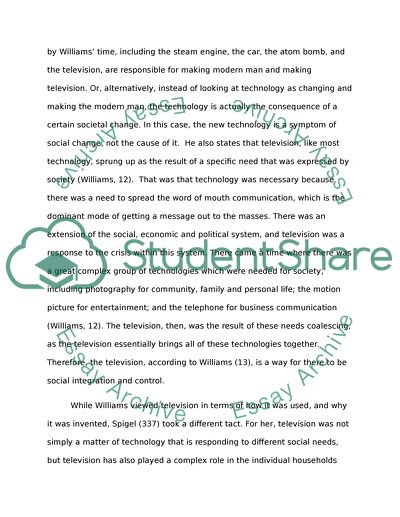Cite this document
(“Television Essay Example | Topics and Well Written Essays - 1250 words”, n.d.)
Retrieved from https://studentshare.org/journalism-communication/1487671-television
Retrieved from https://studentshare.org/journalism-communication/1487671-television
(Television Essay Example | Topics and Well Written Essays - 1250 Words)
https://studentshare.org/journalism-communication/1487671-television.
https://studentshare.org/journalism-communication/1487671-television.
“Television Essay Example | Topics and Well Written Essays - 1250 Words”, n.d. https://studentshare.org/journalism-communication/1487671-television.


